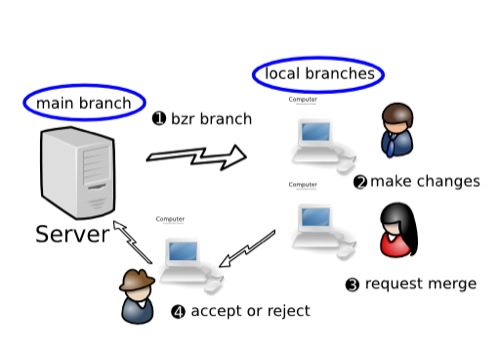The role of a DevOps engineer is a unique and challenging one, sitting at the intersection of software development and IT operations. Companies are rapidly moving towards DevOps models to streamline their development cycles and improve deployment reliability. As a result, the demand for DevOps engineers with the right skill set has never been higher. This comprehensive article delves into the multitude of skills required for DevOps to arm you with the knowledge needed to excel in this critical role.
Understanding of Code and Scripting
The role of a DevOps engineer requires a deep understanding of coding and scripting to automate mundane tasks and optimize existing processes. Scripting languages such as Python, Ruby, and Shell are often used for this purpose. Knowing how to code not only adds a feather to your cap but also distinguishes you as someone who understands both the development and operational aspects of the software lifecycle.
Scripting is like the magic wand for DevOps; it’s what enables them to perform tasks quickly, accurately, and consistently. Good script-writing can significantly reduce errors in routine tasks, thereby ensuring high-quality deployments. Thus, if you aspire to be in DevOps, make sure that coding and scripting are part of your arsenal of skills required for DevOps engineer.
The nuances of coding for DevOps are also intricate. It’s not just about writing code; it’s about writing efficient, reusable, and modular code. The better your coding practices, the smoother the pipeline, making you an invaluable asset to your team.
If your career aspirations include becoming an expert in this area, taking some coding bootcamps or advanced courses would be highly beneficial. It’s a primary hard skill for engineers that pays off in multiple ways.

Software Development Methodologies
DevOps engineers often work closely with software developers, which makes it essential to have a firm grasp of software development methodologies like Agile, Scrum, or Kanban. Having this foundational knowledge is crucial for effective collaboration with the development team and ensuring streamlined software production.
Knowledge of development methodologies is not just a cherry on top; it’s the icing on the cake that makes the entire DevOps process sweet. It allows for better coordination, establishes a common language, and provides a framework for how work should be completed and goals met.
Agile methods, for example, put a heavy emphasis on continuous delivery and integration, core components of DevOps. Therefore, understanding these methodologies will ensure that you fit seamlessly into the development cycle, making you a critical cog in the DevOps machine.
Having exposure to these methodologies during real-world applications can be a game-changer. Understanding the mechanics, attending daily stand-ups, participating in sprints, and adopting best practices in the Agile framework could very well be the skills required for DevOps that set you apart from the rest.
Systems and Networking Fundamentals
It is a significant advantage for a DevOps engineer to possess a strong understanding of systems and networking fundamentals. The duties of a DevOps role often extend into configuring and maintaining servers, optimizing network operations, and ensuring that the infrastructure runs smoothly.
Knowledge of networking protocols, firewall management, and IP routing contributes to designing and maintaining resilient systems. This knowledge helps DevOps professionals excel in their roles by allowing them to understand how their code impacts the infrastructure it runs on.
Good networking knowledge is more than understanding the basics; it’s about optimizing for performance, security, and reliability. The role requires a deep understanding of how various components in the architecture interact with each other, and how to troubleshoot issues when they arise.
For those looking to add value to their role as a DevOps engineer, having a certification in networking could be the answer. It’s one of the technical skills required for DevOps engineer that can make a significant difference in your career trajectory.

Version Control Systems
In the fast-paced world of DevOps, version control systems like Git are non-negotiable. They allow multiple people to work on projects simultaneously, providing tools for storing changes, tracking history, and merging modifications from different team members.
Version control systems offer more than just a place to store your code. They’re central to the DevOps pipeline, providing a history of changes and enabling rollbacks if something goes awry. Understanding branching, pull requests, merging, and conflict resolution is essential for any DevOps engineer.
Not only do version control systems support individual contributors, but they also significantly contribute to team dynamics. A well-implemented version control strategy can be the cornerstone for the continuous integration and continuous delivery (CI/CD) process, a top DevOps skill.
For those who have yet to get familiar with version control systems, there are numerous online courses that cover the subject in-depth. Mastery of this tool is a must-have devops engineer requirement.
Infrastructure as Code
The ability to manage infrastructure as code (IaC) is one of the skills required for devops that is gaining significant traction. IaC allows you to manage and provision your infrastructure through machine-readable definition files rather than traditional interactive configuration tools.
IaC is not just a new buzzword; it’s a paradigm shift in how infrastructure is managed. Instead of manually configuring an environment, code does all the work for you. This way, environments can be replicated, scaled, and managed with a high degree of efficiency and less room for human error.
DevOps engineers can benefit greatly from IaC because it allows for quick setup, with environments being spun up or down as needed. This is particularly important in a cloud-centric world where flexibility and scalability are essential.
For DevOps engineers looking to truly master their craft, understanding the intricacies of IaC tools like Terraform or Ansible is indispensable. As organizations increasingly move to cloud environments, this will become a devops engineer required skill.

Continuous Integration and Continuous Deployment
CI/CD pipelines are the backbone of modern DevOps operations. They facilitate the automatic building, testing, and deployment of code, reducing the time from development to deployment and enabling a quicker feedback loop.
But CI/CD is more than just a pipeline; it’s a culture. Embracing CI/CD means fostering a culture of frequent code checks and deployments that are integrated into the day-to-day practices of a development team. A DevOps engineer should not only be able to set up these pipelines, but also understand how to optimize them for performance.
CI/CD also involves an array of toolsets, such as Jenkins, GitLab, and Travis CI, each with its unique advantages and disadvantages. Knowledge of these tools not only helps in setting up the CI/CD pipeline, but also in customizing it according to an organization’s specific needs.
Understanding and implementing CI/CD processes is one of the skills required for devops engineer that can elevate you from being a good engineer to a great one. You’ll be at the forefront of automating and optimizing all phases of the development cycle, ensuring efficiency and reliability in the software delivery process.
Monitoring and Logging
Monitoring and logging are essential to understanding what’s happening in your application and infrastructure. Tools like Grafana for monitoring and ELK Stack for logging are commonly used in DevOps practices.
Monitoring helps in proactively identifying any issues that might affect performance or availability before they impact the customer experience. Effective monitoring can save organizations a lot of money and time by reducing downtime and increasing the efficiency of the development cycle.
Being proficient in monitoring and logging tools and knowing how to interpret the data they provide is crucial. This competency allows you to act quickly and efficiently, making it a quintessential what makes a good devops engineer.
Cloud Services
Cloud computing has become a standard in the tech industry, and understanding how to utilize cloud services like AWS, Azure, or Google Cloud is essential. The cloud provides a scalable and flexible environment that is integral for DevOps practices.
The cloud isn’t just a place to host your applications; it’s a complex ecosystem offering a variety of services and tools to streamline your DevOps processes. From managed databases to serverless computing, the cloud provides endless possibilities for improving your pipeline.
Having one or more cloud certifications can significantly boost your resume and practical abilities. It’s not just a good-to-have, but a devops engineer required skill in today’s cloud-centric world.

Communication and Collaboration
Soft skills might not seem as important as technical abilities, but for a DevOps engineer, communication and collaboration are essential. DevOps is all about breaking down silos between departments and creating a cohesive workflow between development and operations.
Being a great communicator means understanding your team’s strengths and weaknesses and knowing how to delegate tasks effectively. DevOps requires continuous communication between team members to ensure that everyone is on the same page, and work is being carried out as efficiently as possible.
The ability to collaborate effectively with other departments is equally crucial. As a DevOps engineer, you will need to interface with development, QA, and sometimes even customer service or sales teams. Being able to communicate your ideas clearly and understand other perspectives is critical for the successful implementation of DevOps practices.
Soft skills may not often come up when discussing what skills does a devops engineer need, but they can set you apart in a field teeming with technical prowess.
Conclusion
The role of a DevOps engineer is as exciting as it is challenging. It’s a role that necessitates a wide range of skills required for devops, from technical know-how to soft skills. If you’re considering a career in DevOps or are looking to elevate your current role, this guide provides an in-depth look into the multifaceted skill set you’ll need to succeed. The journey to becoming an expert DevOps engineer is a continuous one, but with the right skills, you’re well on your way to becoming an invaluable asset in any tech-driven organization.